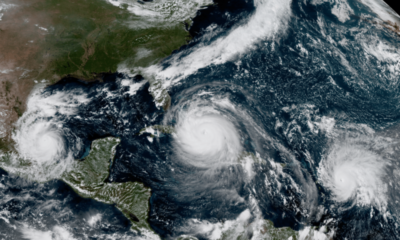The roof of the Princesshay Centre in Exeter is the home of 10,000 honeybees and staff have been given the open invitation to get training to become beekeepers. The healthy colony of bees is thriving and the shopping center intends to maintain five living hives by end of next year. This is the first attempt of any shopping center in launching a City Bee project and it has proven to be a success.
A huge challenge
A WeeTree Nurseries personnel, Jason Wallis said that the shopping center rooftop’s set-up is fantastic and efforts at helping the first colony establish itself has succeeded. The project was conceptualized in February 2012 and started with consultancy meetings with the Exeter Bee Keepers Association. From then, it quickly moved forward to the first colony of 10,000 bees’ arrival at the Princesshay rooftop last April.
An exciting project
Andrew Littlejohns the operations manager of the Princesshay Shopping Center said that the idea came to light when he saw a program about bees dying by the millions. He became concerned especially given the impact of the bees’ unexplained demise to the environment.
The colony is being sustained by plants and other features that attract bees and help them to thrive. A bee friendly environment was built by Mitie Landscaping. There is even an irrigation system just to make sure that the plants in this garden paradise remain healthy for the bees. The rooftop environment was allowed to mature during the 2012 autumn and winter so that they are ready in the event of the arrival of the first colony. The funding for the project is being provided by Land Securities, the landlord of Princesshay.
Everyone’s on it
Staff members will be helping to manage the colony. The Princesshay management has contacted the restaurants and retailers in the complex and asked their staff if they wanted to be part of the training. The project will soon have a beekeepers core team and they would be caring for the first colony and the other colonies that would be coming in the next few months.
So far, there have been four training sessions given by Wallis of WeeTree Nurseries and more have been scheduled for the year. Princesshay has made the necessary investment on professional equipment for beekeeping and it has set aside a storage area for these at the rooftop. Aside from contributing to biodiversity efforts, trained beekeepers will be eligible to receive honey produced by the rooftop colonies.
What’s happening to the bees?
Bee colonies have been dying out around the world. In the US alone, the bee population is at a 50-year low. According to the United Nations Food and Agriculture Organization 71 out of 100 crops that provide 90% of food to the world’s population are pollinated by bees.
The European Union has made the move to ban certain pesticides called neonicotinoids that are believed to be harmful to bees, though findings are still inconclusive on the matter. The United States is more cautious and a recent report says that there are too many possible causes such as pathogens, diseases, nutrition, and environmental stressors. As such, there has been no move to ban pesticides in the United States.
Photo Credit: Bee















Facebook
Twitter
Pinterest
Google+
LinkedIn
Email